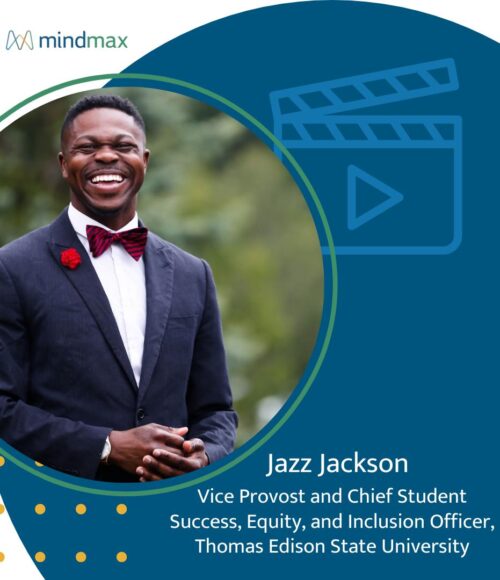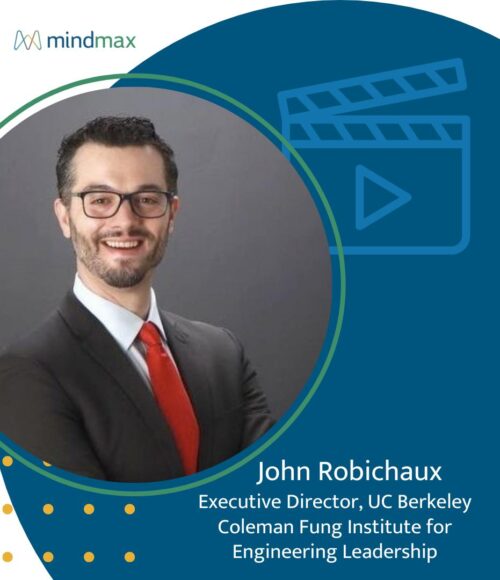Summer Programs: A Conversation on Higher Education Trends

Summer Programs: A Conversation on Higher Education Trends
Thoughts and Reflections from Industry Leaders
Believe it or not, summer 2023 will be here before we know it!
MindMax recently hosted an interactive event with higher education leaders to discuss higher education trends regarding summer sessions: past, present, and future.
The panelists in attendance included:
- Lowell K. Davis, Vice Chancellor, Student Affairs at University of North Carolina Wilmington, 2022 President of NAASS
- David Lee, Assistant Vice President for Curricular Operations and Strategy at Southern Methodist University, 2023 President of NAASS
- Debra Boucher, Assistant Dean of Undergraduate Studies at Worcester Polytechnic Institute, President Elect for 2024 of NAASS
Here is a recap of some of their insights.
What Are Your Thoughts and Reflections on Summer 2022?
Lowell K. Davis
Lowell kicked off the conversation by focusing on a word that he joked higher education leaders would be happy never to hear again: pivot.
“When summer 2022 came around, we were trying to figure out what we were going to do,” he recalled. “We kept hearing the word ‘pivot’ and thinking, ‘How do we take courses we may have built as residential courses and move them to online courses? What do we do with our summer camps and conferences? How do we approach COVID testing? How do we run programs in a way that’s meaningful to the people who are paying for them while pivoting to a different modality?’”
Lowell commended institutions like St. Louis University and Georgia Tech that engaged students creatively through Zoom with scavenger hunts and other activities they typically would have done in person.
“Hopefully, we don’t have to pivot again for a while!” Lowell said.
David Lee
David’s campus had returned to pre-COVID operations by the summer of 2022, and their summer programming this past year was entirely in person. However, reflecting on when summer programming had been remote during the height of the pandemic, he acknowledged that there is now an increased interest in online learning.
“As a traditional residential college, we had very little in the way of online undergraduate programming pre-COVID. Now, faculty who taught remotely are interested in additional opportunities to teach online, and we’re leveraging that momentum to develop more online classes,” said David.
Debra Boucher
Debra’s university shut down during Spring Break in March 2020 and didn’t fully return to normal operations until 2022.
“During the summer of 2020, we saw extraordinary growth. We went from about 10% of our undergraduates taking summer classes to about 21% in one year. When we got to 2021, I was certain we would see a complete fallback, but we did not. We did see a significant contraction after almost a year and a half of students being somewhat online. Summer online didn’t seem very attractive. By last summer, I really expected that we would see continued contraction, and we did not,” Debra recalled.
Going forward, Debra said there is significant buy-in from faculty and departments to continue teaching online in the summer. “We expect to see some growth this summer because we know that even despite significant online learning fatigue last summer, we still maintained our numbers.”
How Do You Use the Fall, Winter, and Spring to Prepare for Summer?
David Lee
“A couple of years ago, we started calling courses earlier than usual, and we’ve been slowly working our way back. This past year, we reached out in October to start getting the summer session set up. We find that gives us a longer marketing timeline and an ability to sort out any complications,” said David.
David and his team also spend this time analyzing data. “We look at graduation and retention statistics, comparing intercession participants to nonparticipants, to get a sense of how effectively our programs are helping to drive four-year graduation rates,” he added.
Debra Boucher
“We’ve used summer to reach institutional goals around student success, student retention, and diversity and inclusion, so we do a lot of analysis during this time of the year,” echoed Debra.
“We’ve had an ongoing program for our first-year students where we look at them after the fall semester and identify students who are vulnerable. We then offer them the opportunity not to overload in the spring, offering them a free class in the summer instead,” she said.
Debra explains to students that “the first rule of getting out of a hole is to stop digging.” She encourages them to use the spring semester to get their feet back under them and then use summer to get ahead—without having to spend additional money.
“We see about a 10% completion difference between those who are eligible for the program and didn’t take us up on it and those who did,” said Debra.
Lowell K. Davis
“We’re really trying to figure out what summer session looks like and add some structure,” said Lowell. “Currently, we’re focused on a marketing campaign to let students know that summer session is a viable option for them.”
Lowell’s efforts involve getting students back on campus in the wake of the pandemic. “We’re working to determine the right mix of online and in-person classes because we really want people on our campus during the summer,” he expanded.
Lowell is especially interested in offering pre-college programs that can improve the university’s retention, persistence, and graduation rates and leveraging summer programs to support diversity, equity, and inclusion efforts.
What Do You Expect from Summer 2023?
Debra Boucher
“I am hopeful for this summer that we will continue to see some growth,” said Debra. “Our faculty members are interested in new ways of doing things, which has been really exciting. And students are so happy to be back in person living in this new normal.”
She adds that one significant thing she is thinking about is how to set realistic goals for her institution regarding summer enrollment.
Lowell K. Davis
“As we look toward the future, universities are thinking about summer in ways they haven’t in the past,” said Lowell. “The revenue associated with summer sessions was once an afterthought, but now it’s clear that these programs can be highly successful revenue generators.”
“We also need to think about how we leverage technology in the summer,” he added. “Have you ever seen someone dissect an animal online? I’ve seen it. And it happened in a summer session class—online. There are actual modules where students take biology, and they’re completing labs and doing a number of different things that would once seem impossible. So I think we have to talk with our faculty members and show them what’s possible.”
David Lee
“We have the advantage of a winter session that’s usually a pretty good bellwether for what’s ahead in our summer session,” said David, explaining that current winter session enrollment indicates that summer session participation levels will be about what he would have expected.
Piggybacking on Lowell’s point that summer programs can be effective revenue generators, David said that this realization puts financial pressure on summer programs to perform well and continue to grow.
“I think it is reasonable to expect that there is a saturation point,” he said. “We have to manage expectations and make it clear that summer is not necessarily a bottomless well of growth and opportunity.”
Meet Your Summer Program Enrollment Goals
If your college or university needs support meeting or exceeding enrollment goals for your summer programs, MindMax can offer higher education marketing and enrollment strategies proven to drive results.
Connect with MindMax on LinkedIn for more thought-provoking content and analysis of higher education trends!
Related Ideas
Jazz Jackson Wants to Help Every Student Finish What They Start

John Robichaux Wants Lifelong Learning to Drive Public Impact
